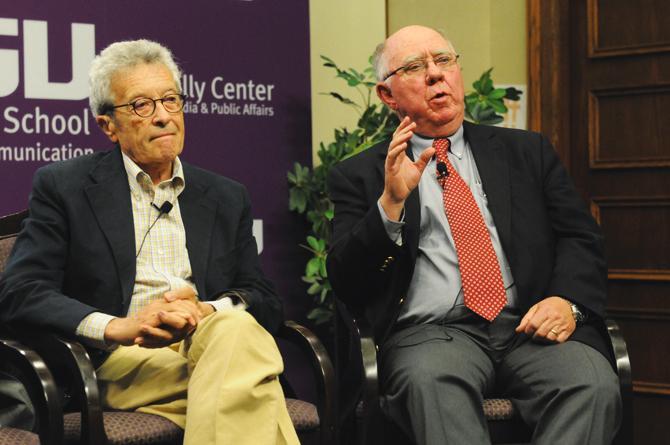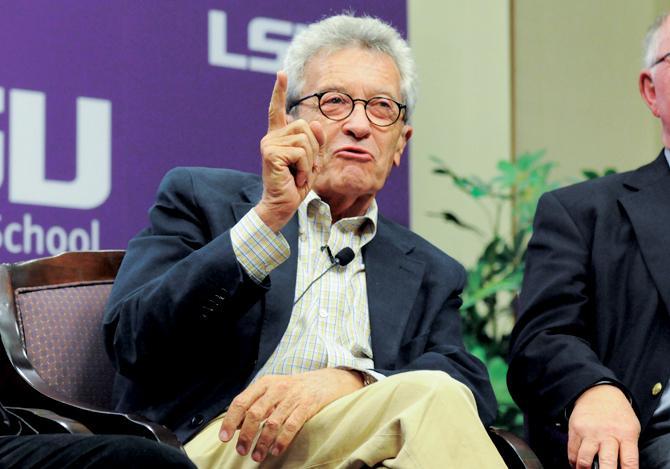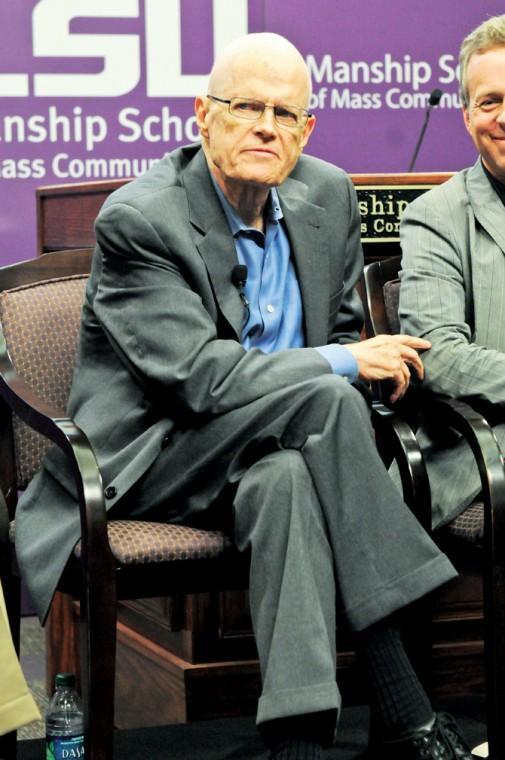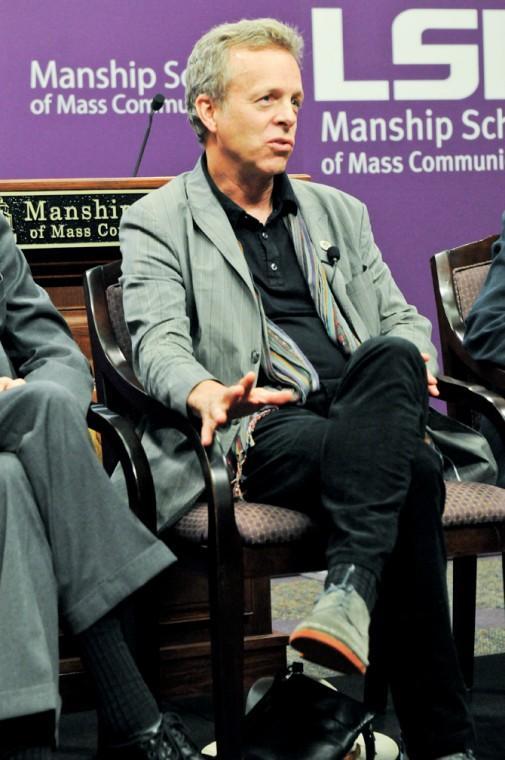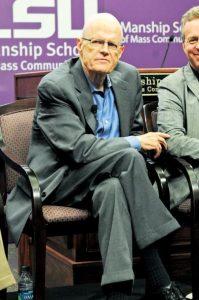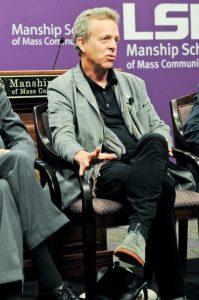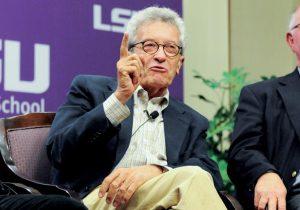Former political consultant for presidential nominee Gary Hart’s campaign Ray Strother told students that advertising experts are guided by their own personal ethics at the Political Madmen forum in the Holliday Forum on Monday evening.
“We all have lines we should draw,” Strother said.
All panelists agreed that the most important facet of a campaign is a solid candidate.
Doug Bailey, who worked on former president Gerald Ford’s 1976 campaign, agreed and said he thinks it’s the candidate’s sense of integrity that matters when deciding which political campaign to work for.
“I worked with people who, on a variety of subjects, I didn’t agree with, but I respected,” Bailey said.
Gerald Rafshoon, White House communications director during President Jimmy Carter’s one term, said to “find somebody you can believe in.”
Mark McKinnon, a consultant for George W. Bush’s 2000 and 2004 campaigns, said voters can perceive genuine moments, so most of the time, he wouldn’t script his candidates.
McKinnon said one of his concerns with the current race is fact-checking. The problem, he said, is not with effective fact-checking, but with the fact that campaigns can say they won’t be held hostage by fact-checking.
“We’ve reached a very dangerous point. Campaigns are just thumbing their nose at fact-checkers,” McKinnon said.
Rafshoon agreed that the game has changed.
“There is more money, so much more money,” he said.
Strother said to oversimplify it, the pollster is hired first, then the media consultant.
“The creativity is being sucked out,” he explained.
McKinnon said the money has increased, but the people working are still “all of the old guys who have been around a while,” though he added that “young guns” are making a splash.
“As creative guys, we often hate research. It’s tough to see some of your children [ideas] shot down, but I’m awfully glad they did,” McKinnon said.
All four panelists agreed that presidential candidates Mitt Romney and President Barack Obama need to “tell people what they’re for,” as Bailey said.
McKinnon said he believes Romney has been campaigning as someone he is not.
“He saw what he needed to change to win the Republican party primary, and he did,” McKinnon said. “He’s not really comfortable with being so much more right. That doesn’t represent who he is.”
“Saturday Night Live” played into the discussion as well.
Bailey said when Ford ran, “Saturday Night Live” did a better job of defining him than the primary campaign.
“They reduce the campaign to the smallest common denominator,” McKinnon said.
McKinnon also said he gets more credible news from Jon Stewart and Stephen Colbert than “the rest of them,” referring to national news outlets.
Forum moderator and Reilly Center Director Bob Mann said campaigns for Romney and Obama during this election have so far spent $726 million on television ads.
Campaigns commonly use focus groups to test-run advertisements before putting them on-air.
Because of this, Rafshoon said he believes there are now too many fingers in the pie of political advertising.
Bailey said part of the unfairness of focus groups is that participants know they will be questioned about it.
“Who at home watches their TV that way?” Bailey asked.


